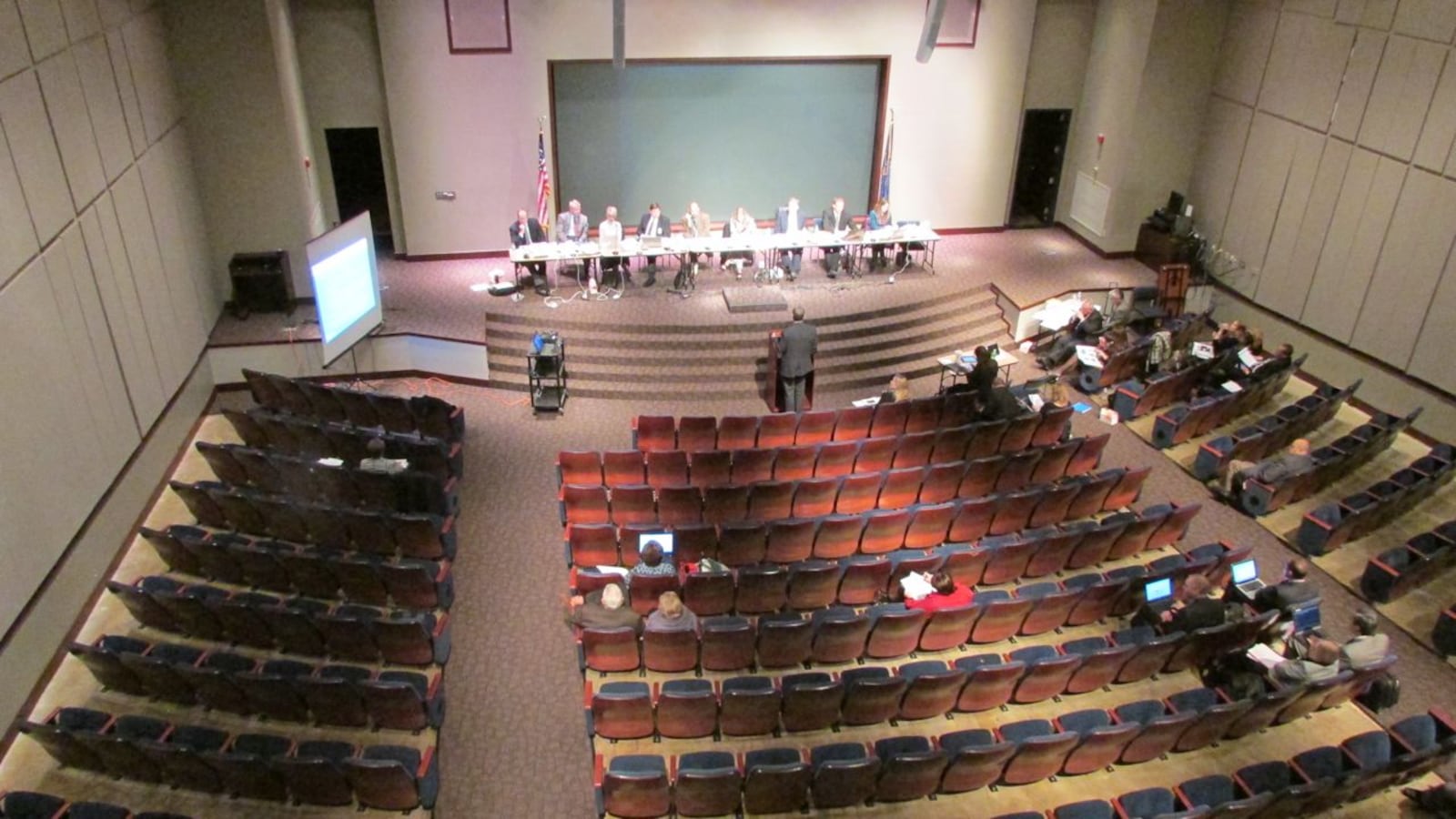The Indiana State Board of Education is expected to vote tomorrow on how much student test scores factor into teacher evaluations — for some, it could be as much as 50 percent.
The recommendations come from The New Teacher Project, a consultant brought in by the board to help improve the evaluation system. If the state board approves and the legislature makes accompanying changes to state law, some school districts could be required to include student test score growth as a bigger factor in teacher evaluation scores than they do now.
A 2011 law that overhauled teacher evaluation in Indiana left those decisions up to local school districts. That law required student test score growth to “significantly inform” a teacher’s evaluation score, which was interpreted very differently by different school districts.
The recommendations to the state board vary on what percentage of a teacher’s evaluation score should be based on student test scores. It would depend on what subject is taught. Student scores could be as little as 25 percent of ratings and as much as 50 percent for those teaching tested subjects. Several districts count test scores as less than 25 percent of a teacher’s overall rating.
So far, it has been difficult to compare teacher results across the state because the evaluation systems schools are using vary. Critics of using test scores to determine teacher effectiveness have said the scores are unreliable. For example, factors other than the teacher’s work could affect student scores. Where test scores are used as a major factor in evaluation, it is common to see big swings in ratings — teachers rated at the bottom one year rise to the top the next, while those at the top fall to the bottom at unexpectedly high rates.
Indiana teachers this year saw predominantly positive ratings — more than 97 percent of the state’s teachers who were rated were deemed “highly effective” or “effective,” the top two of four categories. Hardly any were rated “ineffective.”
The board is also expected to take action on these four issues:
IPS wants approval for its planned “transformation zone:” The state board will consider plans from Indianapolis Public Schools to create a “district-within-a-district” to oversee some of the district’s most struggling schools. The idea is modeled after a similar approach in Evansville that IPS argues could work better than traditional state takeover of failing schools. The IPS transformation zone is eventually expected to include George Washington, John Marshall and Broad Ripple high schools as well middle and elementary schools that feed into those high schools.
The district might have a plan for Arlington High School: IPS regained control of Arlington in December, the first district to get back control over a failing school that was taken over by the state. IPS officials will present a plan for board approval, but details are not clear. Previously, IPS has said they might merge Arlington and John Marshall high schools or allow an outside group to independently manage the school. Merging was unpopular at a community meeting, and Superintendent Lewis Ferebee said the district would consider other options.
IPS wants the board’s blessing for its plan to jointly oversee Donnan Middle School: IPS and representatives from Florida-based Charter Schools USA will ask the board to approve a partnership between the two that would create a K-8 school in Donnan that CSUSA would manage. Officials from the charter school organization have said in the past students would do better if they started in the school when they were younger. IPS and CSUSA would recruit 300 students each to fill grades K-6 under the plan. The new K-8 school would open this fall.
There could be more changes to A-F grading: The state board is expected to change the way schools can appeal their letter grades. Currently, schools appeal directly to the Indiana Department of Education, but under a proposal schools would instead petition the board and then send a copy of that petition to the Indiana Department of Education — effectively cutting them out of the decision-making process over which schools are considered for appeals.
The board also has plans to discuss changes to science standards: The board will hear a presentation of proposed new science standards. Science has not been part of the past debate over Common Core and new English and math standards for Indiana. But, like Common Core, the science standards Indiana is considering are also shared by other states: 14 have adopted it so far. If the board approves them Wednesday, the proposed standards begin a nearly year-long process of review and feedback from Indiana educators, board members and the public before final approval is expected in January 2016.

